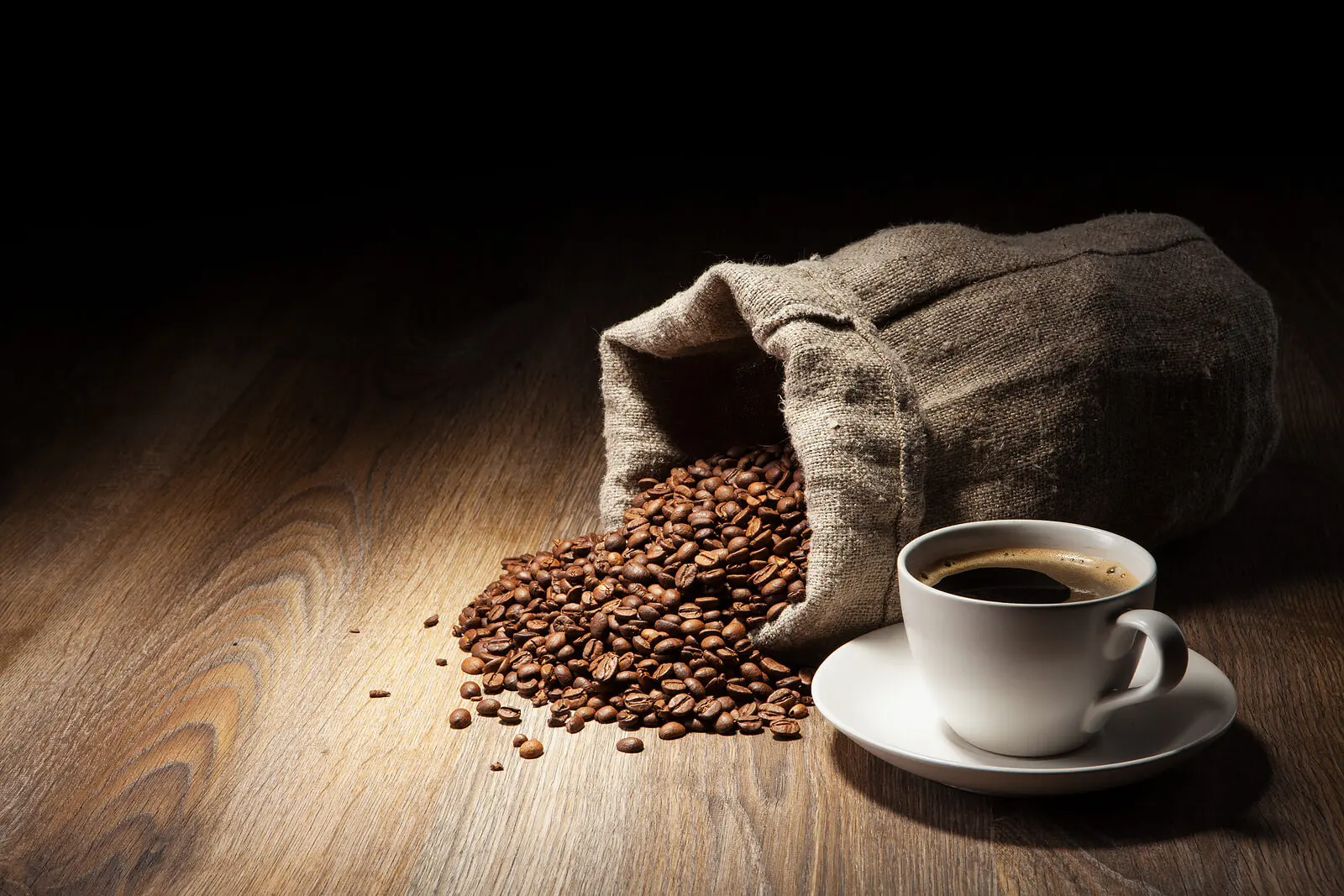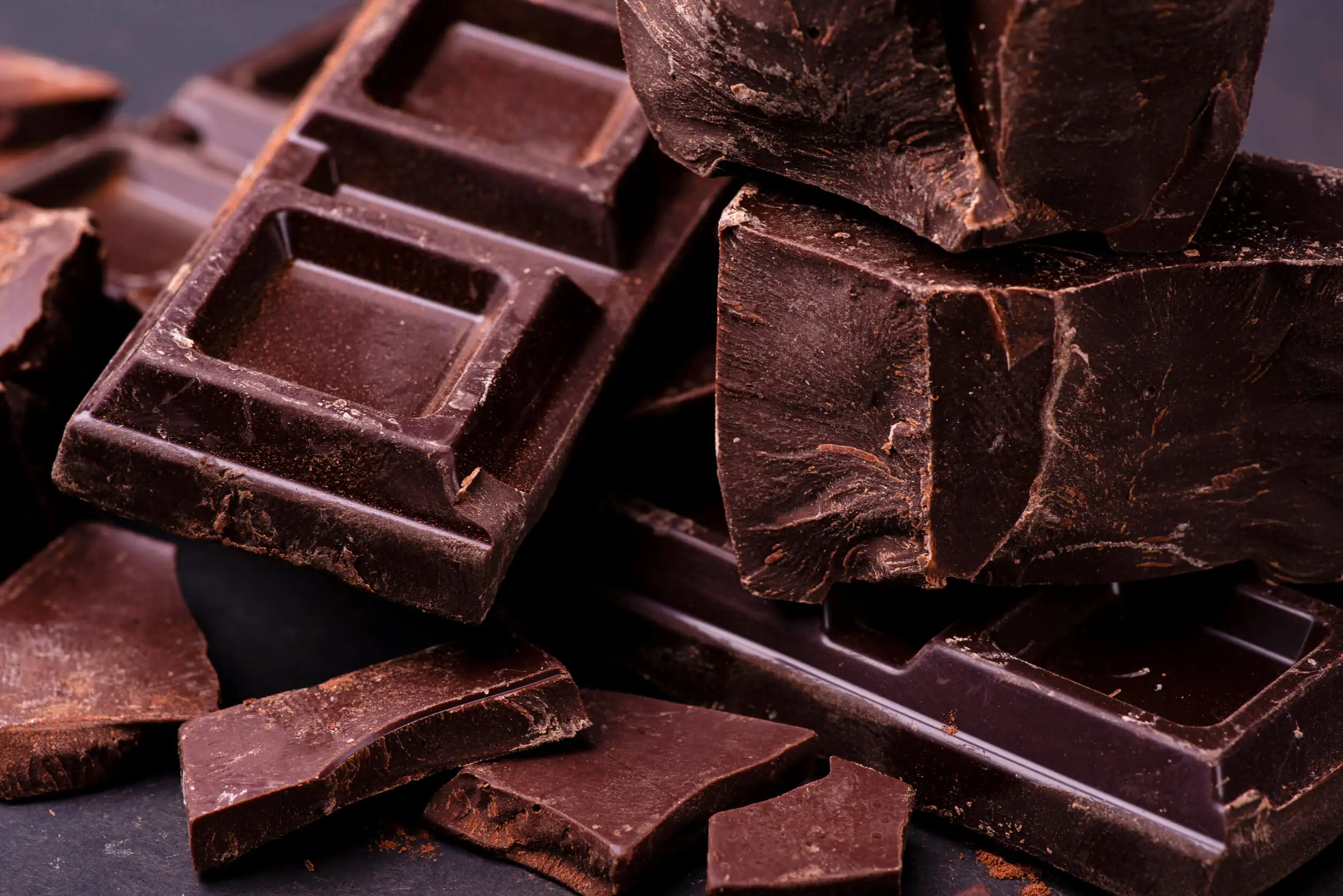What Are the Effects of Caffeine on Children?


Written and verified by the nutritionist Maria Patricia Pinero Corredor
The interest of some specialists in the consumption of caffeine in children is because they believe that children are a particularly vulnerable population, since they’re still growing and dveloping. So, it’s important to keep a watchful eye on the foods they eat and the effects they produce in their bodies.
So, what are the effects of caffeine in children? There are still many controversies, but science does have something to say on the subject. Let’s take a closer look
What is caffeine?
Caffeine is a chemical compound present in certain vegetables, such as coffee beans, cocoa, tea leaves, guarana, and kola nuts. Other names for it are theine, guaranine, or mateine.
People have been drinking it since the 9th century. Thus, it’s the most consumed psychostimulant in the world and the most socially accepted worldwide.
Caffeine consumption stimulates the central nervous system and, at reduced doses, people feel alert and more energetic. The recommended amounts with health benefits in adults range from low to moderate, between 100 to 300 milligrams per day.
For example, it has been observed that these doses can reduce the risk of type 2 diabetes and cardiovascular disease, as well as promote weight loss. It is possible that they may prevent colorectal cancer, although the latter is debatable.
However, the effects of caffeine in children are still under investigation.
Caffeine is added to a wide variety of foods, such as cakes, ice cream, candy, and cola drinks, including energy drinks. This is why it’s important that it’s recorded on the product label and doesn’t go unnoticed.
Like this article? We think you may also like to read: Home Remedies for Caffeine Withdrawal
How much caffeine is found in commonly caffeinated foods and beverages?
The European Food Safety Authority (EFSA) established the caffeine content of different food products. The values are expressed in milligrams (mg) of caffeine per serving:
- A 200-milliliter cup of filtered coffee: 90 mg
- A 250-milliliter can of energy drink: 80 mg
- A 60-milliliter espresso: 80 mg
- A 220-milliliter cup of tea: 50 mg
- A regular can of cola drink of 355 milliliters: 40 mg
- A 50-gram piece dark chocolate bar: 20 mg
- A 50-gram milk chocolate bar: 10 mg
Other foods that often contain it are yogurt and ice cream mixed with cocoa or coffee. In the case of cocoa, the purer the cocoa, the more caffeine. When it’s mixed with sugar, it’s diluted and tends to provide less.
Some supplements used for workouts may also have caffeine. That’s why it’s important for adolescents to consult their instructors or health professionals about this.
On the other hand, the most recognized source of caffeine, which is coffee, does not always provide the same amount. According to International Coffee Organization the proportion of this stimulant varies depending on the origin of the bean, the composition of the blend, and the method of preparation.
Instant coffee contains less caffeine, but the volume used may be higher. In general, values range from 80 to 115 milligrams of caffeine in a 5-ounce cup of coffee.

The effects of caffeine on children
The onset of contact of children with caffeine can occur from the very moment of conception, through the placenta. The Centers for Disease Control and Prevention (CDC) has established that 3 out of 4 children consume caffeine in the form of solid foods or beverages. The most frequent of these are soda or cola drinks, followed by chocolate bars and energy drinks.
Caffeine affects sleep
It has been found in observational studies that children from 5 to 15 years old who have ingested 1 to 5 cans of cola per day, equivalent to 50–250 milligrams of caffeine, presented significant alterations in their sleep cycles.
Calamaro also explained that caffeine can delay the total time of the sleep cycle at night in children from 4 to 15 minutes. Other scientists link caffeine to sleep disorders, such as insomnia.
It can alter your mood
It’s possible that caffeine can cause stress and anxiety in children. The state of alertness that it generates doesn’t allow them to recognize the natural tiredness after an activity.
In this sense, a study carried out on students between 11 and 17 years of age revealed that caffeine increases their risk of anxiety and depression, while it does not have much effect on their stress levels. On the other hand, Luebbe and Bell observed that a group of children who consumed 15.24 mg/kg of caffeine 3 or 4 times a week proved to be more emotional and depressive compared to a group of adolescents who did not consume caffeine.
Other experts confirmed that children with depression consume more caffeine because it reduces the negative symptoms related to that disorder.
Caffeine affects some cognitive functions
In a study, the relationship between caffeine intake and cognitive functions in childhood was studied. More than 11,000 children between 9 and 10 years of age had an average intake of 13 milligrams of caffeine per day. It was observed that those who increased their intake had the lowest scores on cognitive tests.
The cognitive functions most affected were episodic and working memory, vocabulary comprehension, cognitive flexibility, and speed of information processing. Some authors have found that the consumption of cola-based beverages in children increases the appearance of symptoms of attention deficit hyperactivity disorder, known as ADHD.
Other secondary alterations
Caffeine can also produce nausea and lack of appetite. You must keep this from affecting a child’s proper growth and development.
In addition, when caffeine is omitted, headaches can occur, since the effect responds as a reflex or withdrawal of the central nervous system.
We think you may also like to read this article: 7 Tips for Coping with Lupus Related Fatigue
Positive effects at low doses
A team of researchers measured the intake of different doses of caffeine on anaerobic exercise in children aged 8 to 10 years. They found that low doses of caffeine did not affect any parameters, but all other doses increased strength and physical performance.
Furthermore, caffeine has been studied as a first-line therapeutic agent in alterations of cerebral or respiratory dynamics. Treatment of respiratory disorders with caffeine seems to be effective.

The recommended caffeine dosage in children
As in the case of adults, recommended caffeine dosages differ among suggestions made for children. Some consumption guidelines in Canada postulate that children under 12 years of age should not exceed 85 milligrams of caffeine per day.
While another study limited the suggestion to 2.5 milligrams of caffeine per kilogram of body weight per day. Above this amount would already be considered toxic for children.
What to do to reduce the consumption of hidden caffeine in children
It’s easy to recognize the main sources of caffeine. Coffee, tea, chocolate, and especially cola drinks provide high values of caffeine in children. So, if necessary, you should absolutely reduce the frequency of their consumption in the regular diet.
On the other hand, in those products that contain caffeine in the formulation, check the label well to see if caffeine is present. When in doubt, consult a health professional to establish when or not your child is consuming too much caffeine.
All cited sources were thoroughly reviewed by our team to ensure their quality, reliability, currency, and validity. The bibliography of this article was considered reliable and of academic or scientific accuracy.
- Torres-Ugalde Yeyetzi Citlali, Romero-Palencia Angélica, Román-Gutiérrez Alma Delia. Efectos fisiológicos y cognitivos de la cafeína en la infancia: revisión sistemática de la literatura. Dieta Rev Esp Nutr Hum [Internet]. 2020 Dic [citado 2022 Sep 29] ; 24(4): 345-356. Disponible en: http://scielo.isciii.es/scielo.php?script=sci_arttext&pid=S2174-51452020000400006&lng=es. Epub 25-oct-2021. https://dx.doi.org/10.14306/renhyd.24.4.1041.
- Gökcen BB, Şanlier N. Coffee consumption and disease correlations. Crit Rev Food Sci Nutr. 2017; 1-13. doi: 10.1080/10408398.2017.1369391. Disponible en: https://pubmed.ncbi.nlm.nih.gov/28853910/
- La cafeína. EFSA. Disponible en: https://www.efsa.europa.eu/sites/default/files/corporate_publications/files/efsaexplainscaffeine150527es.pdf
- Verster JC, Kuening J. Caffeine intake and its sources: A review of national representative studies. Crit Rev Food Sci Nutr. 2018: 1250-59. Disponible en: https://pubmed.ncbi.nlm.nih.gov/28605236/
- Calamaro CJ, Yang K, Ratcliffe S, Chasens RE. Wired at a Young Age: The Effect of Caffeine and Technology on Sleep Duration and Body Mass Index in SchoolAged Children. J Pediatr Health Care. 2012; 26(4): 276-82. Disponible en: https://pubmed.ncbi.nlm.nih.gov/22726712/
- Watson EJ, Banks S, Coates AM, Kohler MJ. The Relationship Between Caffeine, Sleep, and Behavior in Children. J Clin Sleep Med. 2017; 533-43. Disponible en: https://www.ncbi.nlm.nih.gov/pmc/articles/PMC5359329/
- Turley K, Eusse P, Thomas M, Townsend JR, Morton AB. Effects of Different Doses of Caffeine on Anaerobic Exercise in Boys. Pediatr Exerc Sci. 2015; 27: 1-22. doi: 10.1123/pes.2014-0032 . Disponible en: https://pubmed.ncbi.nlm.nih.gov/22728413/
- Centro para el Control y Prevención de enfermedades. Disponible en: https://www.cdc.gov/spanish/index.html
- Richards, G., & Smith, A. (2015). Caffeine consumption and self-assessed stress, anxiety, and depression in secondary school children. Journal of psychopharmacology (Oxford, England), 29(12), 1236–1247. https://doi.org/10.1177/0269881115612404
- Zhang, H., Lee, Z. X., & Qiu, A. (2020). Caffeine intake and cognitive functions in children. Psychopharmacology, 237(10), 3109–3116. https://doi.org/10.1007/s00213-020-05596-8
- Luebbe A.M., Bell D.J. Mountain Dew® or mountain don’t? A pilot investigation of caffeine use parameters and relations to depression and anxiety symptoms in 5th- and 10th-grade students. J. Sch. Health. 2009;79:380–387. doi: 10.1111/j.1746-1561.2009.00424.x.
- Whalen DJ, Silk JS, Semel M., Forbes EE, Ryan ND, Axelson DA, Birmaher B., Dahl RE Consumo de cafeína, sueño y afecto en los entornos naturales de jóvenes deprimidos y controles saludables. J. Psicología Pediátrica. 2008; 33 :358–367. doi: 10.1093/jpepsy/jsm086.
- Doyle LW, Schmidt B, Anderson PJ, Davis PG, Moddemann D, Grunau RE, et al. Reduction in Developmental Coordination Disorder with Neonatal Caffeine Therapy. J Peds. 2014; 165(2): 356-59. Disponible en: https://pubmed.ncbi.nlm.nih.gov/24840756/#:~:text=Conclusions%3A%20Neonatal%20caffeine%20therapy%20for,benefit%20from%20neonatal%20caffeine%20treatment.
- International Coffee Organization. Cafeína. Disponible en: https://www.ico.org/ES/caffeine_c.asp
- Ruxton C. Health aspects of caffeine: benefits and risks. Nurs Stand. 2009; 24(9): 41-8. Disponible en: https://pubmed.ncbi.nlm.nih.gov/19953767/
- Ruxton CHS. The suitability of caffeinated drinks for children: A systematic review of randomised controlled trials, observational studies and expert panel guidelines. J Hum Nutr Diet. 2013; 27: 342-57. Disponible en: https://pubmed.ncbi.nlm.nih.gov/25099503/
- Kim KM, Lim MH, Kwon HJ, Yoo SJ, Kim EJ, Kim JW, et al. Associations between attention-deficit/hyperactivity disorder symptoms and dietary habits in elementary school children. Appetite. 2018; 127: 274-9. https://pubmed.ncbi.nlm.nih.gov/29758272/
This text is provided for informational purposes only and does not replace consultation with a professional. If in doubt, consult your specialist.








